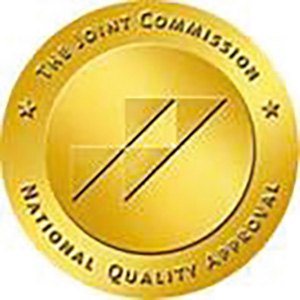
In 1973, my boss sent me out on my first business trip, flying from JFK to Peoria, Illinois to interview insurance agents. Would these busy, commission-based people be interested in answering questions posed by a Brooklyn kid? “Well, Mark,” my boss told me, “they have a lot of strong feelings and opinions, and this will be the first time anyone from the corporate office has reached out to them. So yes, they are excited and will be completely honest and forthcoming in their comments, both positive and negative.” Lesson learned—people want to be heard … especially if they have not been heard in the past.
During my 43-year business career, much of it in research, I was also active in the Orthodox Jewish community. In serving as president of my shul, day school, vaad ha’kashrut (kosher certification) and other roles. I noticed that one thing we did very little of was research. Sure, we listened to complaints and sometimes responded. But at the same time that I headed up a corporate VOC (voice of customer) function that actively sought customer feedback, the Jewish organizations’ attitudes were more along the lines of “we know what they want.”
Nishma Research was founded in 2015 to conduct and offer serious, quality research to the Jewish community, and notably the Orthodox. Our 13th broad community survey is currently in the field (online for people to respond), and as I write this a total of nearly 26,000 people have responded to our community surveys.
A handful have questioned the appropriateness of some of the questions we ask. Actually, less than a handful—four, to be exact. Here’s an example: One person emailed us that the researchers were obviously not frum if they asked people whether they fully believed that “The authority of the Oral Torah (Torah She-B’al Peh—Mishna, Talmud, etc.) traces back directly to Mt. Sinai.” This is just one out of 400+ questions we’ve asked. Interestingly, the percentage that fully agrees with the above statement is in the low-80s to upper-90s across all Orthodox groups, including chassidish and yeshivish.
Is it good to know this? Is it good to understand the issues and even doubts that are on peoples’ minds? We think it’s better to know this than not to know this. As a result, many of our questions are open-ended, as we let people respond in their own words. In one survey, 632 people responded to the question “What gives the most satisfaction, joy or meaning to your life as an Orthodox/observant Jew?” while 584 responded to the question “What, if anything, causes you the most pain or unhappiness as an Orthodox/observant Jew?” The comments were lengthy, passionate and you can read all 86 pages (very lightly edited to ensure anonymity) if you are inclined to do so.
Let’s face it—our world (to whatever extent one interacts with modernity) is complicated and getting more so every day. The challenges are significant. I once heard a podcast commentator opine that “in a battle with modernity, the best religion can hope for is a draw.” Is it not helpful to be fully informed of the challenges and our people’s thoughts and reactions? Is it helpful to ask people about their beliefs, practices, how they cope with possible challenges to their religious lives?
A Lakewood rabbi once called me after reading our 2016 report on why people go off the derech (based on 885 responses), and he asked me whether I would be interested in presenting it at the Agudah convention. His comments were along the lines of: “Speakers address this issue every year or two at the convention, and it is generally presented as the reason is this or the reason is that … simple and identifiable reasons. But from your report I can see that it is very complicated and we really need to pay more attention to understanding the variety of what’s going on.” We didn’t get that invitation, but would still really love to share what we learned. That’s exactly why our research is done. Hey, if anyone who can make this happen is reading this, let us know.
What’s encouraging is the interest that many people have shown. Not only do people want to be heard, but community leaders, shul rabbis, rebbeim and mechanchim, counselors and social workers, etc., increasingly find such information to be very helpful. Part of the reason for this is that we try to answer the questions that are on the minds of the people. The questions come from advisory groups of rabbis, educators, researchers and others from within the community, as well as emails and phone calls that we get. Our mindset is that if there is an issue that people want to know more about, then it is worthwhile for us to find out the answers and fully share what we know (which we always do) with the community.
Naaseh v’nishma, “we will do and we will hear” is seen as emanating from and emblematic of true emuna, faith. Even for people with emuna, there are challenges. In these times, perhaps there is a role for nishma v’naaseh, combining the listening with the doing.
Mark Trencher, founder of Nishma Research and host of the Orthonomics podcast, can be reached at mark@nishmaresearch.com. Its 13th communal survey, “The Nishma Research 2023 Jewish Community Profile,” is available until January 23 at http://bit.ly/Orthodox-Community-2023.









